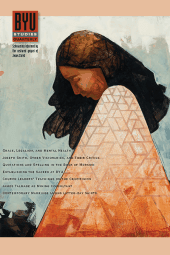One way to read the Book of Mormon is to be attentive to ways in which it comes across as a translated text. Being mindful of this is wise, because all translations—even inspired translations—lose something of the primary language, particularly as meanings shift when words are rendered into the vocabulary or idioms of the target language.
While the exact nature of the original language used by Abinadi, Ammon, Aaron, or Mormon is unknown, the English text of the Book of Mormon gives helpful hints. Two passages (1 Ne. 1:2 and Morm. 9:32–33) suggest that Egyptian and Hebrew elements were found in the language used by Book of Mormon speakers and writers, which allows present-day scholars to look for places where the current translation displays these elements.
This article suggests a possible connection between three Book of Mormon passages and a Hebrew word with a wide semantic range—a range that appears to be reflected quite purposefully in the English translation of these three passages in the books of Mosiah and Alma. That Hebrew word is netzach.
